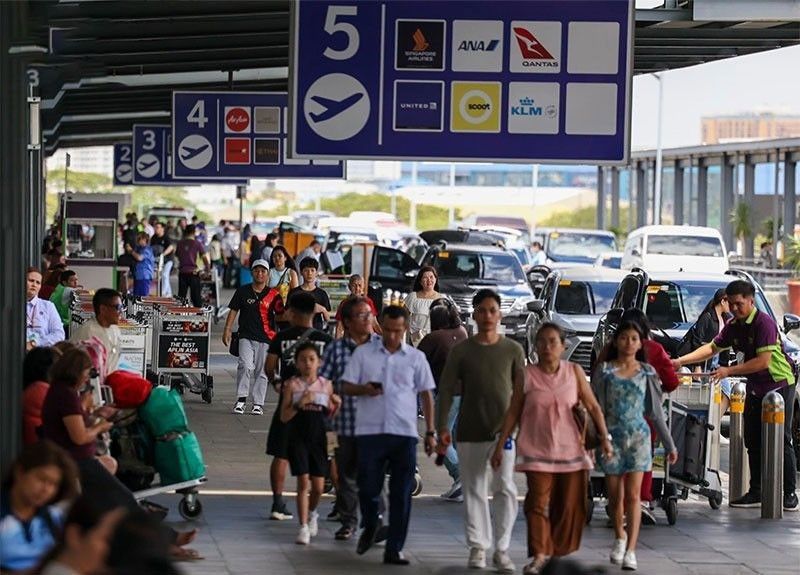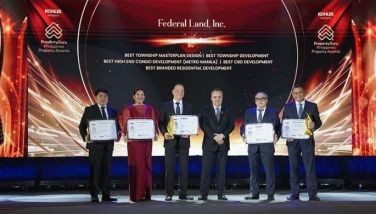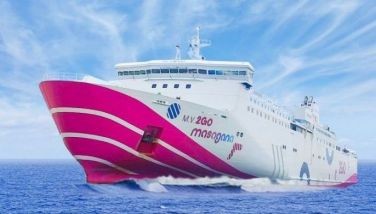Tourism: a third economic leg?


Because we don’t have a significant manufacturing sector and our agricultural sector hardly grows, our economy is heavily dependent on OFW remittances and the BPOs. OFWs contributed a boost to our economy worth $33.5 billion last year. BPOs, on the other hand, is expected to register a seven-percent increase to $37.87 billion in 2024 from the projected $35.4 billion in 2023. This growth is not just in financial terms; employment in the sector is at 1.5 million, has consistently risen and is expected to continue doing so.
According to the Philippine Statistics Authority, tourism contributed 6.2 percent to GDP in 2022. According to Statista, tourism contributed 8.6 percent to GDP in 2023. However, it was still lower than the pre-pandemic GDP share. According to the Department of Tourism, the country’s international tourism receipts have surged at an estimated P482.54 billion in 2023.
This is higher by 124.87 percent compared to the P214.58 billion estimated visitor receipts from the same period in 2022.
It is very obvious that our tourism industry is underperforming its vast potential. And that’s a pity. We need to develop tourism as if our lives depended on it. Tourism provides jobs in the countryside as well as a market for farmers and other small and medium scale entrepreneurs. Tourism should provide a third leg for our economy to help the two other legs, OFWs and BPOs.
Developing tourism is also a good Plan B for us if anything goes wrong with the BPO industry because of AI and/or isolationist policies of a possible Trump administration. Trump has called for bringing back jobs that had been offshored, and that includes BPOs.
One other worry is that 80 percent of our BPO industry is foreign-owned. If push comes to shove, they can very easily pack up and leave. They don’t own hard-to-move machinery, only computers that they upgrade every so many years anyway. A significant loss of market share can lead to a decision to leave. They have no ties that bind them to our country. Negosyo lang.
This is why our officials should not just relax and think BPOs will be here forever. The industry may not totally leave but it could be significantly reduced. The impact of a downscaled BPO industry is scary to contemplate in the absence of a Plan B. A vigorous tourism industry can cushion the impact of a BPO stumble.
But we have serious problems in our tourism development. We are no longer the hospitable Filipinos we once were reputed to be. We have become a nation of scammers and extortioners that victimize our visitors. We are now considered fifth in a list of the top ten dangerous places for tourists to visit. I received this message from a friend who was once a publisher of a well-known tourism magazine:
“Just had lunch with a big Korean tour operator. His complaint is every time Koreans land in the Philippines, they are harassed by Customs in our airports as if they are smuggling something. This is the reality on the ground.”
Koreans are now the number one nationality visiting our country. The irony is, the corrupt folks at Customs and Immigration allow fugitive Chinese nationals into the country as recent PAOCC raids have revealed.
I asked ChatGPT how our tourism industry can deal with its many challenges. Here are some suggestions:
First of all, we need to enhance infrastructure. We need to invest in improving transportation networks (e.g., airports, roads and public transport) to make travel more convenient and efficient. Then, develop and upgrade tourist facilities and services to meet international standards.
We also need to strengthen marketing and branding. That means, developing a cohesive and compelling national tourism brand that highlights unique features of the Philippines, such as its beaches, cultural heritage and adventure tourism. Changing our brand messaging with each new administration wastes our marketing funds.
Improving connectivity is important. We must enhance air connectivity by increasing direct flights from major international hubs. Our congested NAIA is a big problem. It will be three more years before the new world class Bulacan airport opens. We should develop and promote lesser-known destinations to distribute tourist traffic more evenly across the country.
Focus on sustainable tourism. We must protect natural resources and cultural sites, which can also enhance the country’s reputation. We have to convince local communities and LGU leaders it is to their interest that visitors are protected rather than harassed and allowed to enjoy our hospitality.
We must enhance also safety and health protocols to reassure travelers, particularly in the wake of global health concerns. There must be adequate emergency facilities to deal with accidents and events like strokes or heart attacks. Phuket has three private and four government hospitals that can provide reasonable care.
We have to diversify tourism offerings by expanding the range of tourism products and experiences to attract different types of travelers, such as eco-tourism, cultural tourism and adventure tourism. Promote off-the-beaten-path destinations to reduce congestion in popular areas and showcase the country’s diverse offerings.
Then, we need to invest in training and professional development for those working in the tourism industry to enhance service quality and visitor experience.
As for medical tourism, here are two reactions to a column I wrote last week:
“Ang kaso, Boo, we are so much more expensive in Southeast Asia. Thailand, which is number one in medical tourism in the region, is 40 percent cheaper than us. So, what we usually get as medical tourists are really balikbayans who combine a rhinoplasty here, a nip-and-tuck there, while visiting family.”
“Both Thailand and India have much lower costs for medical care (and even medicines, as far as I know). It’s certainly something to be explored but not sure how the Philippines can compete with the costs.”
We have much work to do.
Boo Chanco’s email address is [email protected]. Follow him on X @boochanco
- Latest
- Trending



























